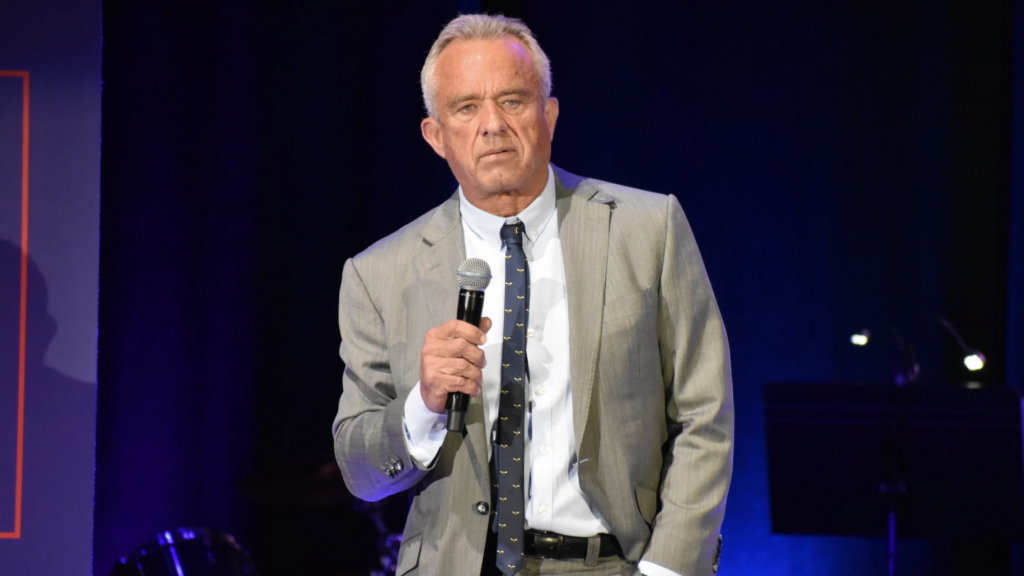RFK Jr. goes to court to drop his name from Michigan ballot
Rick Pluta September 4, 2024Kennedy wants a court to reverse the determination of election officials in the Secretary of State’s office that he missed the deadline for removing his name.

Robert F. Kennedy Jr. addresses a crowd at a fundraiser in Royal Oak on Sunday, April 21, 2024.
A Michigan Court of Claims judge acted quickly Tuesday to deny Robert F. Kennedy Jr.’s request to be removed from the state’s presidential ballot. That’s after Kennedy suspended his campaign last week to back Republican nominee Donald Trump.
Kennedy wants a court to reverse the determination of election officials in the Secretary of State’s office that he missed the deadline for removing his name as the nominee of the Natural Law Party of Michigan. Kennedy is trying to end his candidacy in Michigan and other swing states where he could siphon support from former President Donald Trump, the Republican nominee.
“Plaintiff, a public figure, does not want to represent to the citizens of Michigan that he is vying for their votes for the position of President of the United States,” said Kennedy’s legal filing. “Keeping his name on the ballot against his wishes compels this speech and subjects him to derision, anger, reputational harm, and loss of good will by those who would vote for him based on this speech and later find out their vote was wasted and in vain.”
Kennedy argued the deadline cited by the state elections bureau applies only to down-ballot races and not to candidates for president.
Court of Claims Judge Christopher Yates dispatched the case very quickly, noting the urgency of resolving election-related questions this late in the cycle. Yates wrote the law is “clear and conclusive” that election officials in the Secretary of State’s office are not empowered to go along with Kennedy’s “self-serving act”
“Elections are not just games,” he wrote, “and the Secretary of State is not obligated to honor the whims of candidates for public office.”
Michigan Attorney General Dana Nessel praised the ruling.
“Michigan election law in this instance is unambiguous and the Department of State made the correct decision,” she said in a written statement. “…The law does not apply less because a candidate changes their plans. I appreciate the Court making a quick and wise ruling on this matter.”
Kennedy’s Michigan attorneys did not reply to a request for comment or plans to appeal.
If history is any guide, it is highly unlikely that Kennedy would win Michigan’s 15 electoral votes. The last third-party candidate to win Michigan was former President Teddy Roosevelt, who left the Republican Party to run as the candidate of the Progressive “Bull Moose” Party in 1912. That helped Democratic nominee Woodrow Wilson unseat Republican incumbent President William Howard Taft.
Trusted, accurate, up-to-date.
WDET strives to make our journalism accessible to everyone. As a public media institution, we maintain our journalistic integrity through independent support from readers like you. If you value WDET as your source of news, music and conversation, please make a gift today.
